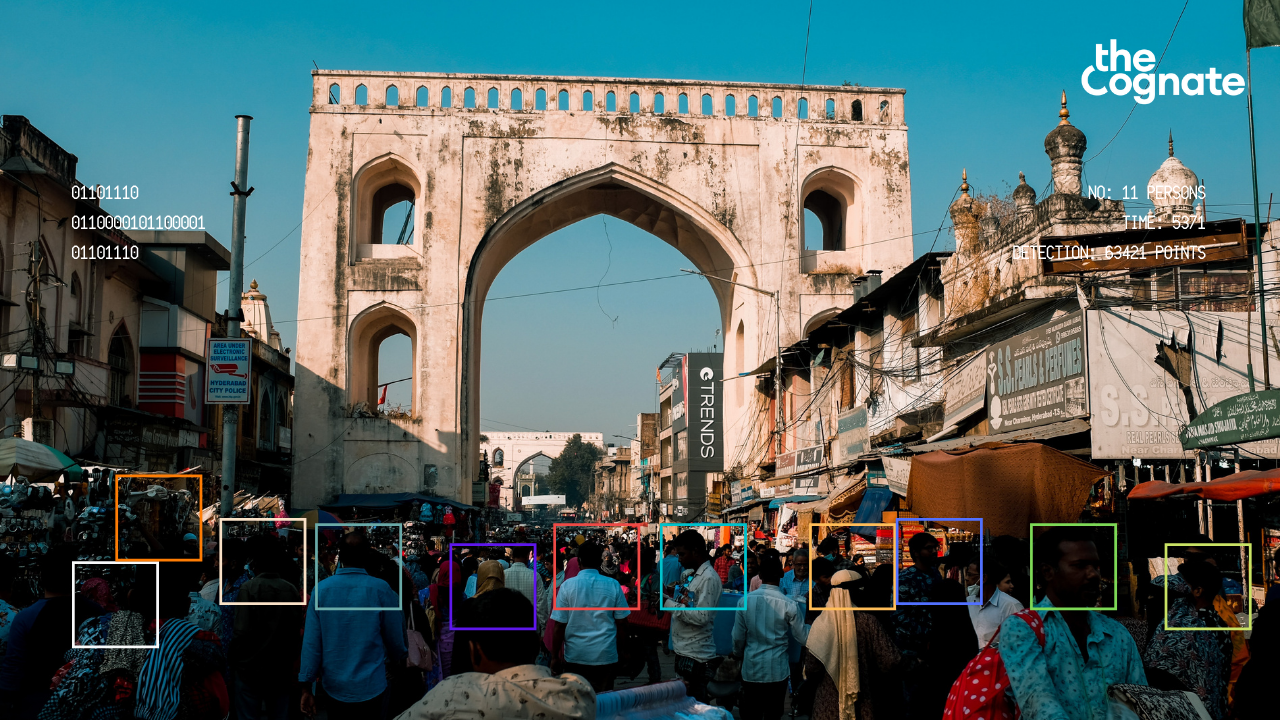“Hyderabad is on the brink of becoming a total surveillance city. It is almost impossible to walk down the street without risking exposure to facial recognition,” said Matt Mahmoudi, Amnesty International’s AI and Big Data researcher in a statement, raising serious concerns about the extensive use of CCTV camera network and the facial recognition technology (FRT) of Telangana police.
Hyderabad is the second-most surveilled city in the world, beating even major cities such as London, Beijing and New York. A study — ‘The Top Surveillance Cities Worldwide’ conducted by Surfshark and published in the South Asia Journal — says Hyderabad has 480 CCTVs per sq km and 30 for every 1,000 people.
In a statement released as part of its Ban The Scan campaign, which seeks to ban intrusive facial recognition technology, Amnesty International said the use of surveillance in Hyderabad is putting human rights at risk.
The report said the Hyderabad police has begun construction of an ominous ‘Command and Control Centre’ (CCC), intended to connect the state’s vast facial recognition-capable CCTV infrastructure in real-time.
“In addition to CCTV, we are concerned that law enforcement’s practice of using tablets to stop, search and photograph civilians without charge could be used for facial recognition,” the international human rights NGO said.
“Situated in Hyderabad’s Banjara Hills, the CCC will reportedly support the processing of data from up to 600,000 cameras at once, with the possibility to increase this scope much further across the region. These cameras can be used in combination with Hyderabad Police’s existing facial recognition software to track individuals,” it added.
The report published in partnership with Internet Freedom Foundation and Article 19 said that the organisations mapped the locations of visible outdoor CCTV infrastructure in two sampled neighbourhoods in Hyderabad – Kala Pathar and Kishan Bagh, with the help of local volunteers. Based on geospatial analysis, it was estimated that in these neighbourhoods at least 530,864 and 513,683 square meters, respectively, was covered by CCTV cameras – a remarkable total of 53.7% and 62.7% of the entire area.
“Facial recognition technology can track who you are, where you go, what you do, and who you know. It threatens human rights including the right to privacy and puts some of the most vulnerable in society at risk. The construction of the CCC has chilling consequences for the right to freedom of expression and assembly,” said Quinn McKew, Executive Director at ARTICLE 19.
“There is currently no legislation in place to protect the privacy of citizens – facial recognition is a harmful and invasive technology and it is imperative that Indian authorities immediately stop the use of this dangerous technology,” said Anushka Jain, Internet Freedom Foundation’s Associate Counsel for Surveillance & Transparency.
The report has called for a total ban on the state and private sector use, development, production, sales, and export of facial recognition technology for mass surveillance purposes.
Related











































